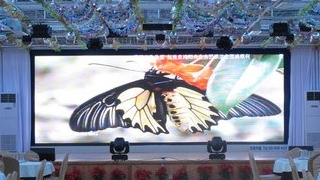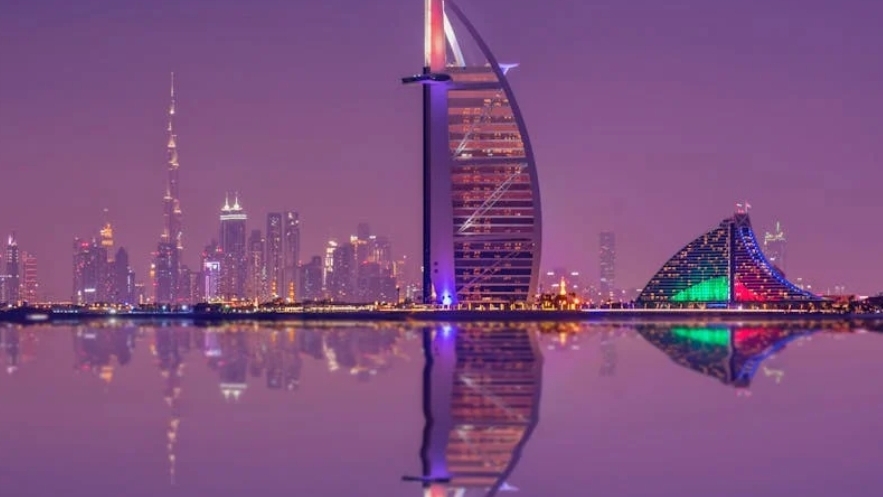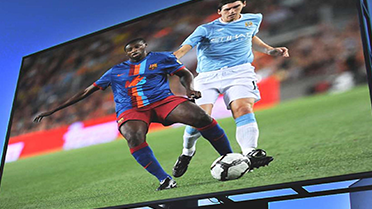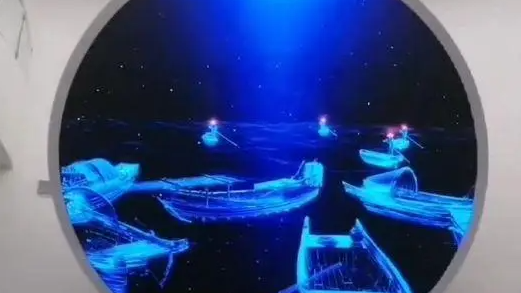




Transparent screen is a special display technology that can display images and text on a transparent substrate. The color gamut of the transparent screen is an important parameter, which determines the display effect of the transparent screen. So, what is the color gamut of the transparent screen?Color gamut refers to the range of colors that a display device can display. The wider the color gamut, the more colors the display device can display and the better the display effect. The color gamut of transparent screens is generally between 70% and 90%. This value is relative to traditional displays, whose color gamut is generally between 30% and 40%.The reason why the color gamut of the transparent screen is wider than that of the traditional display screen is because it uses special display technology. The transparent screen uses an LED display, which can display more colors and has stronger color expression. In addition, the transparent screen can also use RGB color mode, which can dis
Transparent screen is a special display technology that can display images and text on a transparent substrate. The color saturation of the transparent screen is an important parameter, which determines the display effect of the transparent screen. So, what is the color saturation of a transparent screen?The color saturation of a transparent screen refers to the vividness of the colors displayed on the screen. The higher the color saturation, the more vivid the color and the better the display effect. The color saturation of transparent screens is generally between 70% and 90%. This value is relative to a traditional display screen, whose color saturation is generally between 20% and 30%.The reason why the color saturation of the transparent screen is higher than that of the traditional display screen is because it uses special display technology. The transparent screen uses an LED display, which can display more colors and the colors are more vivid. In addition, the transparent screen
As a new display technology, transparent screens have attracted widespread attention due to their unique appearance and transparent properties. However, during application, transparent screens need to face various environmental conditions, one of which is transparency. So, how transparent is the transparent screen?The transparency of a transparent screen depends on its structure and materials. Generally speaking, a transparent screen is composed of multiple components, including a transparent flexible screen, a bracket, a circuit board, a heat dissipation system, etc. The construction and materials of these components need to take transparency into account.The transparency of a transparent screen mainly depends on its material and structure. Transparent screens are usually made from materials such as flexible plastic or polycarbonate, which have a certain degree of transparency but are also affected by factors such as temperature, humidity and wind speed. In addition, the structure of
As a new display technology, transparent screens have attracted widespread attention due to their unique appearance and transparent properties. However, during application, transparent screens need to face various environmental conditions, one of which is bendability. So, how flexible is the transparent screen?The flexibility of a transparent screen depends on its structure and materials. Generally speaking, a transparent screen is composed of multiple components, including a transparent flexible screen, a bracket, a circuit board, a heat dissipation system, etc. The construction and materials of these components need to allow for bending.The flexibility of a transparent screen mainly depends on its material and structure. Transparent screens are typically made from materials such as flexible plastic or polycarbonate, which are somewhat bendable but can also be affected by factors such as temperature, humidity and wind speed. In addition, the structure of the transparent screen will al
As a new display technology, transparent screens have attracted widespread attention due to their unique appearance and transparent properties. However, during application, transparent screens need to face various environmental conditions, one of which is scratch resistance. So, what is the scratch resistance of transparent screens?The scratch resistance of a transparent screen depends on its structure and materials. Generally speaking, a transparent screen is composed of multiple components, including a transparent flexible screen, a bracket, a circuit board, a heat dissipation system, etc. The construction and materials of these components need to account for scratch resistance.The scratch resistance of a transparent screen mainly depends on its material and structure. Transparent screens are typically made from materials such as flexible plastic or polycarbonate, which are somewhat scratch-resistant but can also be affected by factors such as temperature, humidity and wind speed. In
As a new display technology, transparent screens have attracted widespread attention due to their unique appearance and transparent properties. However, during application, transparent screens need to face various environmental conditions, one of which is wear resistance. So, what is the wear resistance of transparent screens?The wear resistance of a transparent screen depends on its structure and materials. Generally speaking, a transparent screen is composed of multiple components, including a transparent flexible screen, a bracket, a circuit board, a heat dissipation system, etc. The construction and materials of these components need to account for wear resistance.The wear resistance of a transparent screen mainly depends on its material and structure. Transparent screens are usually made of materials such as flexible plastic or polycarbonate, which are somewhat wear-resistant but can also be affected by factors such as temperature, humidity and wind speed. In addition, the structu
As a new display technology, transparent screens have attracted widespread attention due to their unique appearance and transparent properties. However, during application, transparent screens need to face various environmental conditions, one of which is weather resistance. So, what is the weather resistance of transparent screens?The weather resistance of a transparent screen depends on its construction and materials. Generally speaking, a transparent screen is composed of multiple components, including a transparent flexible screen, a bracket, a circuit board, a heat dissipation system, etc. The construction and materials of these components need to take into account weather resistance.The weather resistance of a transparent screen mainly depends on its material and structure. Transparent screens are typically made from materials such as flexible plastic or polycarbonate, which are somewhat weather-resistant but can also be affected by factors such as temperature, humidity and wind
The waterproof and dustproof capabilities of a transparent screen depend on its structure and materials. Generally speaking, a transparent screen is composed of multiple components, including a transparent flexible screen, a bracket, a circuit board, a heat dissipation system, etc. The construction and materials of these components need to take into account water and dust resistance.The waterproof and dustproof ability of a transparent screen mainly depends on its material and structure. Transparent screens are usually made of materials such as flexible plastic or polycarbonate, which are somewhat waterproof and dustproof, but are also affected by factors such as temperature, humidity and wind speed. In addition, the structure of the transparent screen will also affect its waterproof and dustproof capabilities, such as the sealing of the screen and the waterproof design of the bracket.When designing a transparent screen, the waterproof and dustproof level and application scenarios need
As a new display technology, transparent screens have attracted widespread attention due to their unique appearance and transparent properties. However, during application, transparent screens need to face various environmental conditions, one of which is wind pressure resistance. So, what is the wind pressure resistance of transparent screens?The ability of a transparent screen to withstand wind pressure depends on its structure and materials. Generally speaking, a transparent screen is composed of multiple components, including a transparent flexible screen, a bracket, a circuit board, a heat dissipation system, etc. The construction and materials of these components need to take into account wind pressure resistance.The wind pressure resistance of a transparent screen mainly depends on its material and structure. Transparent screens are typically made from materials such as flexible plastic or polycarbonate, which are somewhat resistant to wind pressure but are also affected by fact